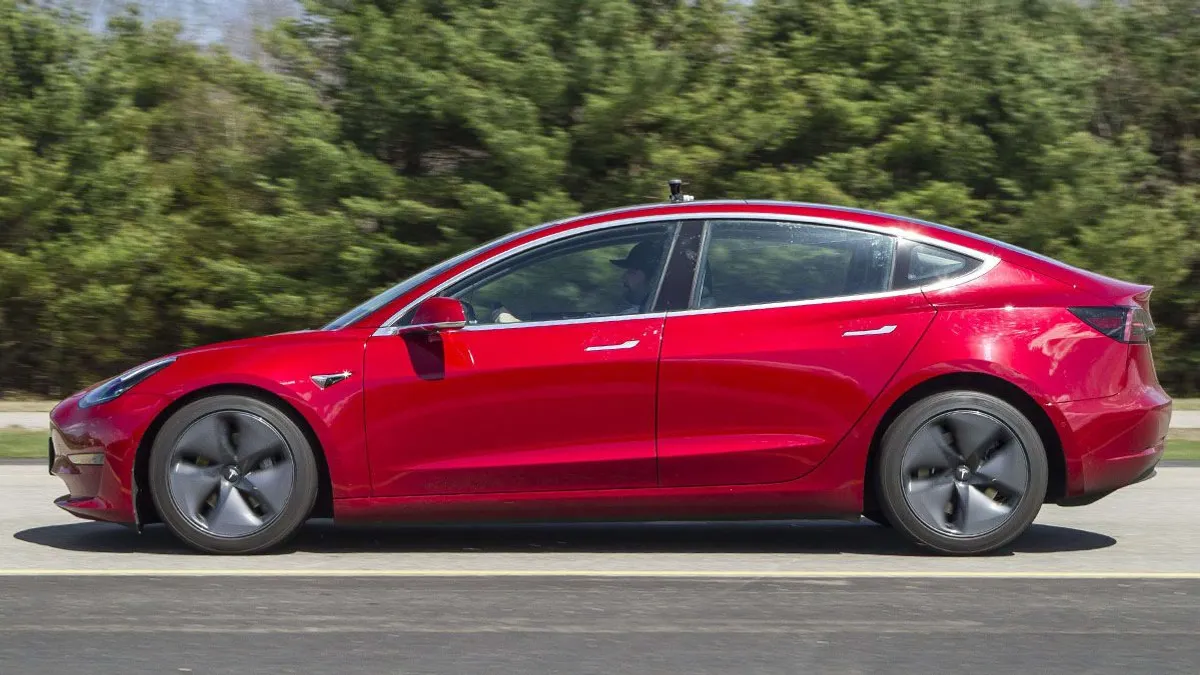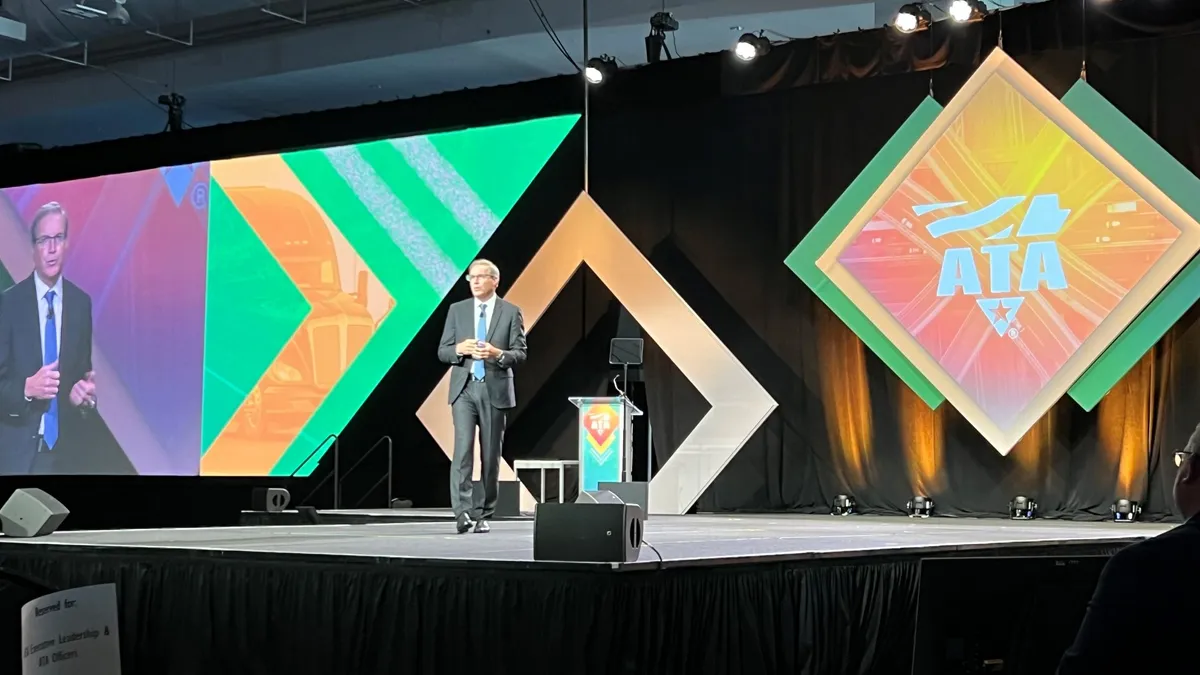Dive Brief:
- A Tesla electric truck was seen on Friday hauling a number of Tesla cars in Fremont, California, the city where Tesla operates an automotive plant. Electrek, an online EV publication, also made note of another photograph showing a Tesla truck hauling Tesla cars. The use of Tesla's own trucks to move Tesla cars comes as reports that the Model 3 will exceed sales expectations this quarter.
- Tesla promised it would build its own fleet of auto haulers in the fall of 2018. Musk said in a Nov. 15, 2018, tweet Tesla acquired trucking capacity "to ensure Model 3 can be delivered in US by Dec. 31 [2018] if ordered by Nov 30 [2018]." Musk told a Tesla car user in September 2018 via Twitter that "we're upgrading our logistics system, but running into an extreme shortage of car carrier trailers. Started building our own car carriers this weekend to alleviate load."
- Yet almost two years later, Tesla is having troubles delivering cars to consumers, ostensibly because of rising demand for its electric cars. Recent delivery dates had to be shifted as the end of the second quarter of 2020 approached, something for which Musk apologized in a Wednesday tweet.
Special thanks to Tesla trucking & rail partners for figuratively & literally going the extra mile
— Elon Musk (@elonmusk) June 25, 2020
Dive Insight:
Tesla's orders for electric cars were predicted to be between 60,000 and 70,000 in Q2 2020, according to Electrek. That would be a 25% drop. But Electrek reported on Thursday that Tesla could beat previous Q2 records, and deliver more than its record 95,000 units. The surge could mean logistical problems for Tesla.
It's unknown how widely built out the Tesla auto-hailing business is. (Tesla did not immediately return a message from Transport Dive.) The company is also using third parties to ship cars via truck and rail. Musk thanked them on Thursday for going "the extra mile."
But the Class 8 Tesla Semi is not yet in large-scale production.
Musk told employees in a June 10 memo that "it’s time to go all out and bring the Tesla Semi to volume production. It’s been in limited production so far, which has allowed us to improve many aspects of the design," according to a memo obtained by Electrek. Production of the battery and powertrain "will take place at Giga Nevada," according to a Musk email that Reuters obtained. Giga Nevada is Tesla's plant in Storey County, Nevada.
Before the COVID-19 pandemic, the auto-hauling sector within the trucking industry was putting problems behind it. Jack Cooper Holdings exited bankruptcy in November. The auto hauler has about 2,500 employees. Also in the fall, United Road, a Carlyle Group subsidiary and car-hauling company, acquired Team Drive-Away, a company that moves new and used Class 8 trucks.
The auto-moving sector was transporting about 17 million new cars and trucks every year, according to Guy Young, the general manager of the Auto Haulers Association of America. Young told Transport Dive he wasn't sure why Tesla wanted their own trucks moving some of the Model 3 cars, but Musk likely wanted some dedicated lines ready because of changing production deadlines.
Young said the auto-hauling sector was expecting another near-record year of 17 million units, but the pandemic struck. Now the sector might expect a reduced haul of between 12.5 million and 13 million units. Young said he foresees no problems with capacity when factories come fully online.
"I am pretty sure they can handle the demand," Young said.
There are signs that demand is returning.
Patrick Manzi, the chief economist for the National Automobile Dealers Association, wrote on his blog that "new vehicle sales began to show signs of recovery after falling to historic lows in April due the coronavirus pandemic. For the month of May 2020, new vehicle sales were down by 29% compared to May of 2019 — a solid improvement compared to April 2020’s 48% decline."
Ultimately, new car sales are on the road to recovery, Manzi wrote. But sales to fleets — like rental car firms Avis and Hertz — are expected to be down for the rest of 2020, he said.












